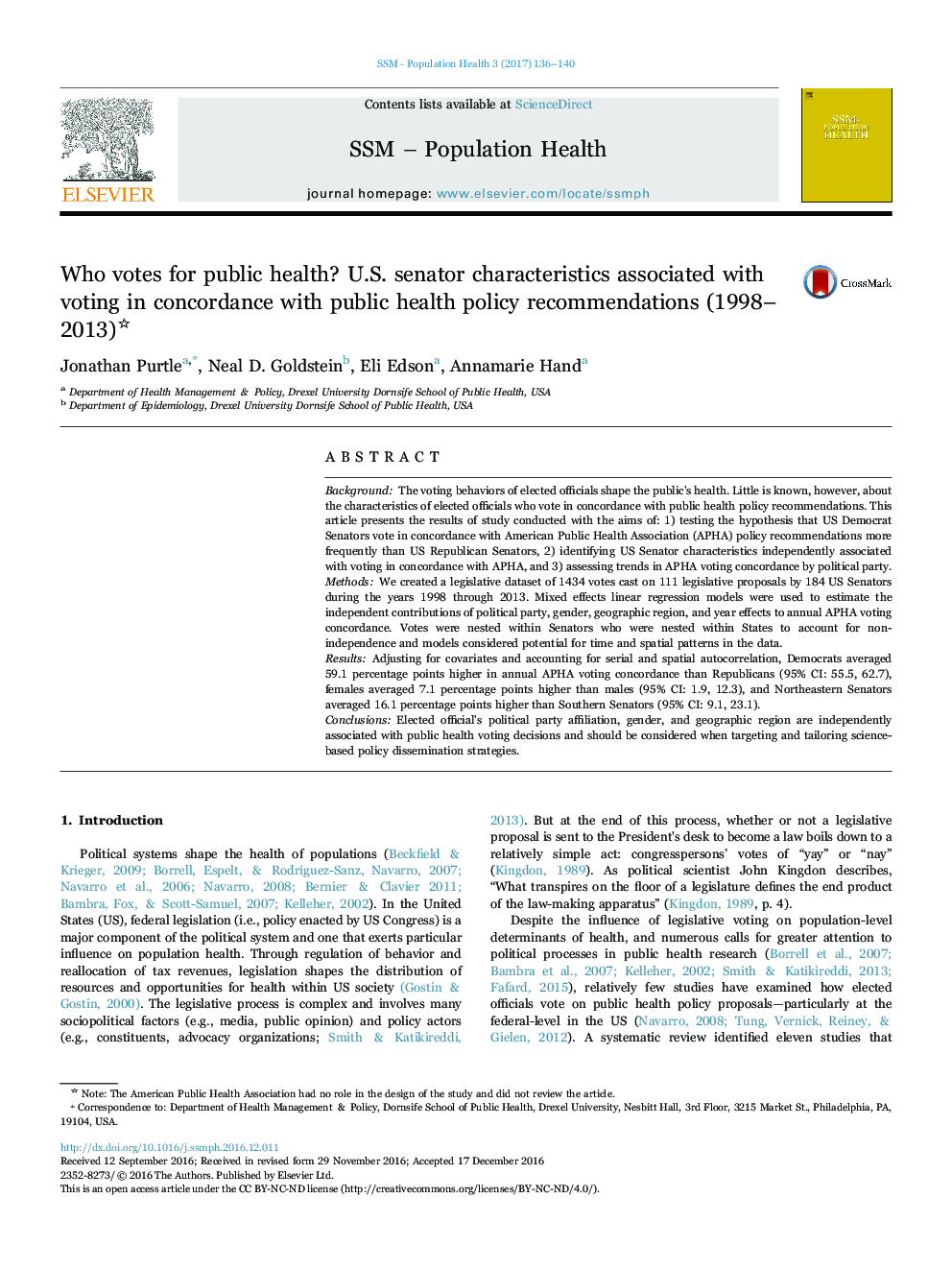| کد مقاله | کد نشریه | سال انتشار | مقاله انگلیسی | نسخه تمام متن |
|---|---|---|---|---|
| 5123242 | 1487259 | 2017 | 5 صفحه PDF | دانلود رایگان |

- We created a legislative dataset of 1434 votes cast on 111 public health policy proposals by 184 US Senators during the years 1998 through 2013.
- In adjusted models, Democrat Senators averaged 59.1 percentage points higher in annual public health policy recommendation voting concordance than Republican Senators, females Senators averaged 7.1 percentage points higher than male Senators, and Northeast Senators averaged 16.1 percentage points higher than Southern Senators.
- Public health policy voting is politically polarized in the US Senate, but Senator characteristics of gender and geographic region are also associated with public health voting.
BackgroundThe voting behaviors of elected officials shape the public's health. Little is known, however, about the characteristics of elected officials who vote in concordance with public health policy recommendations. This article presents the results of study conducted with the aims of: 1) testing the hypothesis that US Democrat Senators vote in concordance with American Public Health Association (APHA) policy recommendations more frequently than US Republican Senators, 2) identifying US Senator characteristics independently associated with voting in concordance with APHA, and 3) assessing trends in APHA voting concordance by political party.MethodsWe created a legislative dataset of 1434 votes cast on 111 legislative proposals by 184 US Senators during the years 1998 through 2013. Mixed effects linear regression models were used to estimate the independent contributions of political party, gender, geographic region, and year effects to annual APHA voting concordance. Votes were nested within Senators who were nested within States to account for non-independence and models considered potential for time and spatial patterns in the data.ResultsAdjusting for covariates and accounting for serial and spatial autocorrelation, Democrats averaged 59.1 percentage points higher in annual APHA voting concordance than Republicans (95% CI: 55.5, 62.7), females averaged 7.1 percentage points higher than males (95% CI: 1.9, 12.3), and Northeastern Senators averaged 16.1 percentage points higher than Southern Senators (95% CI: 9.1, 23.1).ConclusionsElected official's political party affiliation, gender, and geographic region are independently associated with public health voting decisions and should be considered when targeting and tailoring science-based policy dissemination strategies.
Journal: SSM - Population Health - Volume 3, December 2017, Pages 136-140